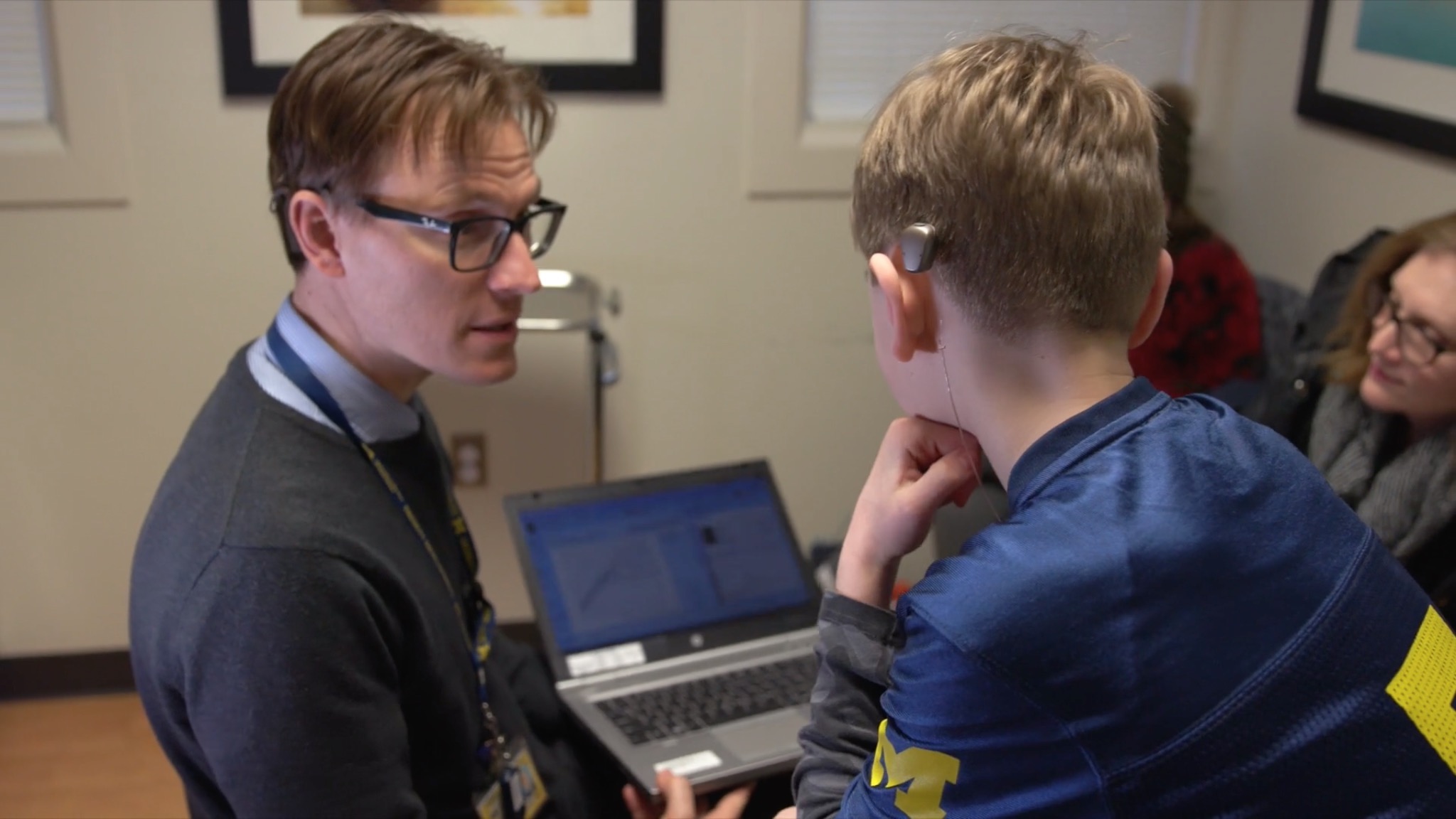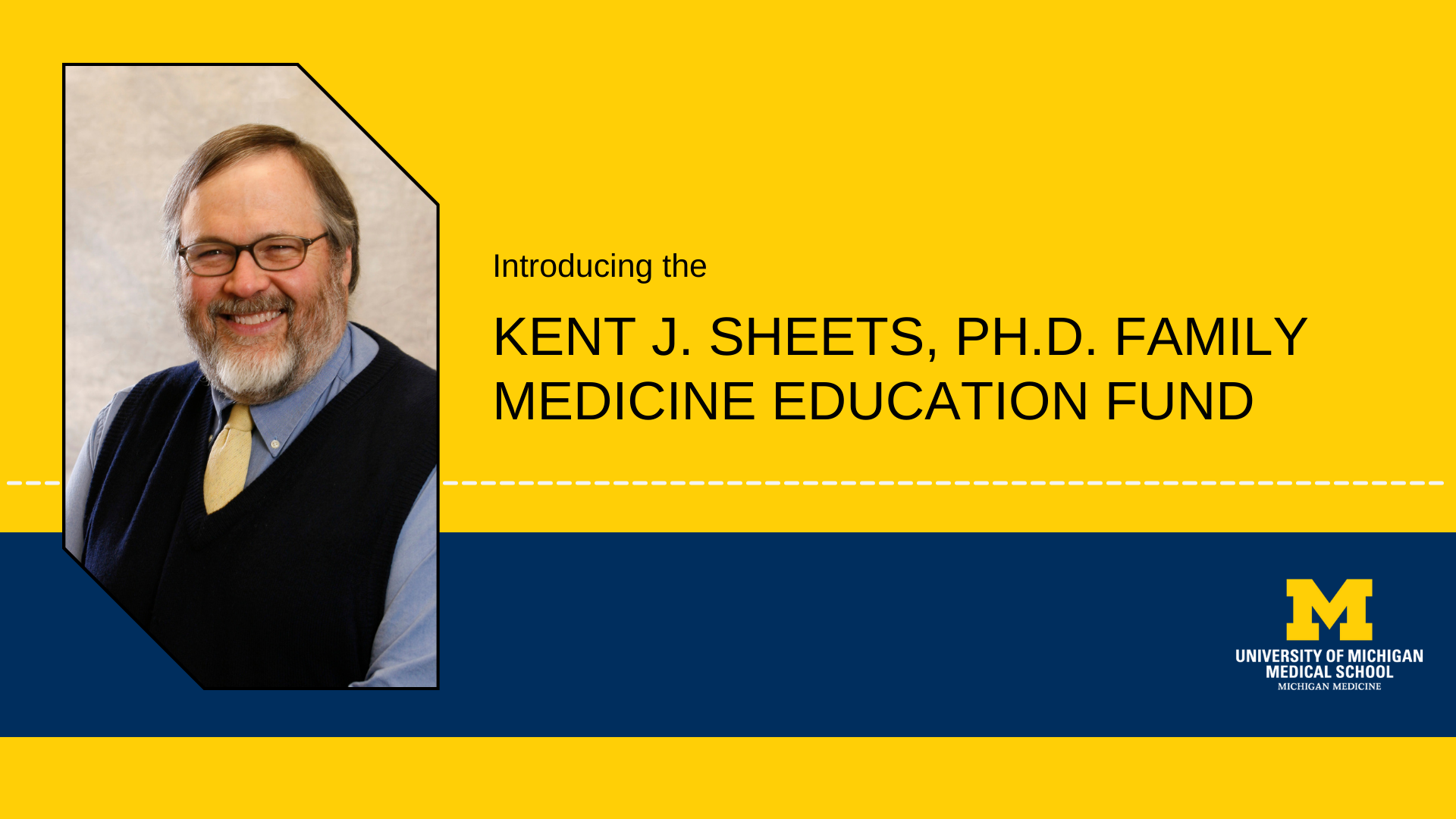
The University of Michigan Deaf Health Clinic is one of less than a dozen clinics nationwide that focus on the primary care needs of deaf and hard of hearing patients. It is the only clinic of its kind in the state of Michigan. The Deaf Health Clinic providing full spectrum primary care services, including prenatal and obstetric care, as well as in-person and virtual mental health services.
A small team of clinicians and behavioral health providers are fluent in American Sign Language (ASL) and clinic staff are sensitive to challenges faced by deaf and hard of hearing individuals as they navigate the health care system.
“The unique thing about this is really having language, what we call language concordance, so we can actually sign directly to the patients,” says Michael M. McKee, M.D., M.P.H., assistant professor and Deaf Health Clinic Co-Director. “So for deaf signers, this is often a big barrier to accessing medical care.”
The Deaf Health Clinic was established by McKee and Philip Zazove, M.D., Chair and the George A. Dean M.D. Professor of Family Medicine, both of whom are deaf family physicians. From scheduling, check-in, evaluations and follow-up, the patient experience is tailored to the experiences of deaf and hard of hearing patients.
READ ALSO: A 2018 Clinical Spotlight: Deaf Health Clinic
Caring for the whole self
The Deaf Health Clinic’s integrated behavioral health model program offers both in-person or videophone appointments, with providers trained to counseling and care management services.
This service is key to providing an avenue for adequate mental health counseling options.
“Deaf patients also are much more likely to have behavioral and also mental health problems,” McKee says. “Depression, anxiety, bipolar, even other things like schizophrenia and substance abuse, those are things that are across the board higher than what you see in the general patient population.”
McKee came to the University of Michigan after having worked at a similar clinic in Rochester, N.Y. There is also a clinic in Chicago that has a provider who can communicate through ASL, but there simply are very few clinics like the Deaf Health Clinic, established by deaf individuals, for deaf individuals.
McKee estimates there are nearly 150 patients at the clinic who are hard of hearing, many through age-related hearing loss. McKee puts the number of patients with hearing issues at “roughly about 12 to 15 percent of the general patient population, with some measurable hearing loss.”
Video transcript
Hello! My name is Michael McKee. I am a family medicine doctor at the Dexter Health Center, affiliated with the University of Michigan, also known as Michigan Medicine.
I wanted to briefly introduce myself and a bit about the program we offer at our health center.
I am a deaf doctor trained in family medicine. This means I am to take care of all patients, including babies and also people. I am bilingual, can either speak or use ASL. A big goal of mine is to ensure Deaf and hard of hearing patients have health equity. This means they are able to get the same level of access and quality as anyone else who may be hearing.
We know unfortunately we still have a long way to go before we have achieved that goal!
At our health center, we have two doctors and a social worker trained to provide mental health services that can take care of your general medical needs, including mental health. Our services are available in ASL.
In addition to the general medical care that we offer, our mental health services are available either in-person or through the videophone, also called telemedicine.
If you are interested in learning more of if you would like to become a patient at our health center, please contact us. Our contact information is shown below. We look forward to caring for you and to continue on our goal to achieve health equity for all DHH patients!


